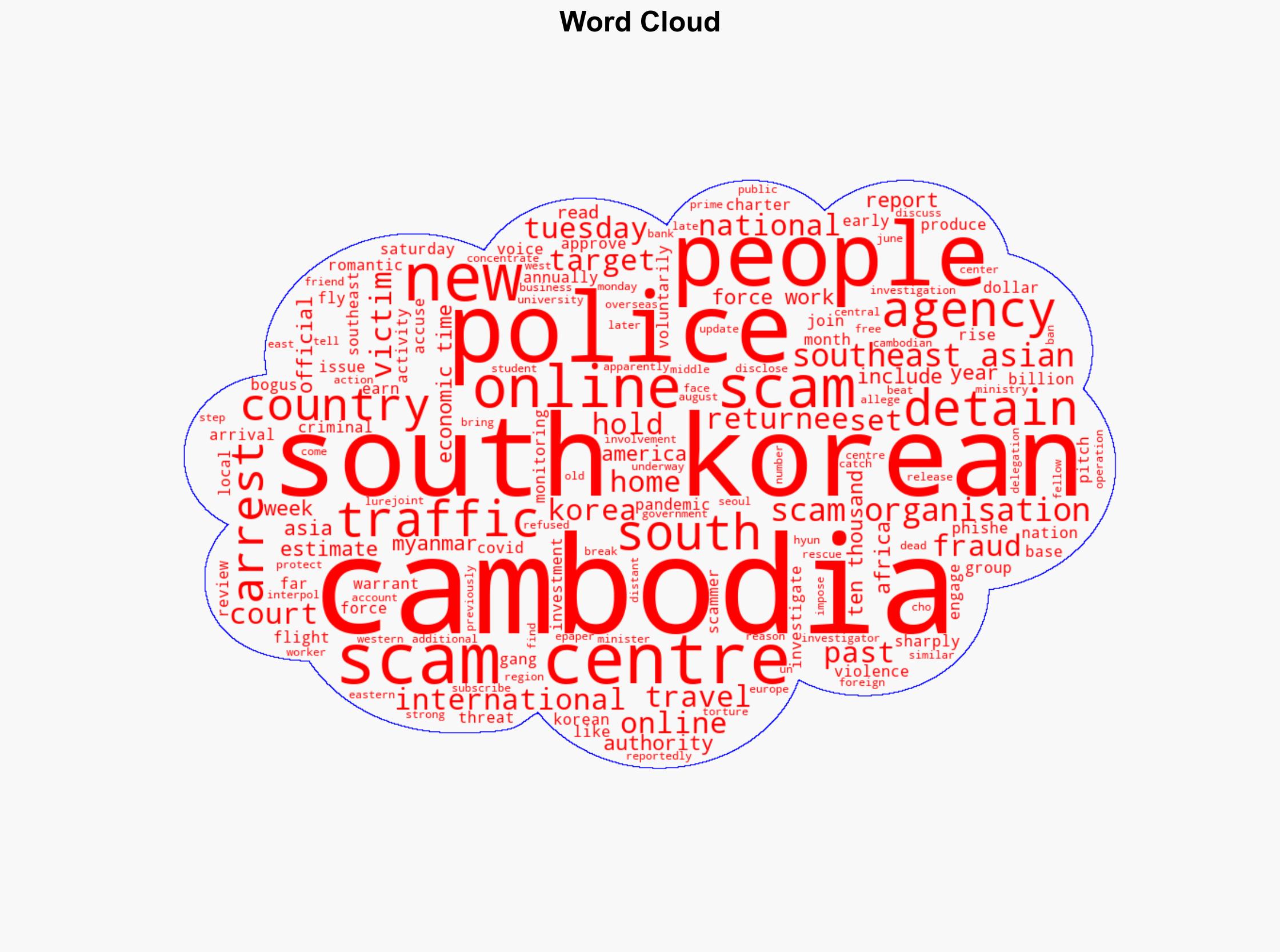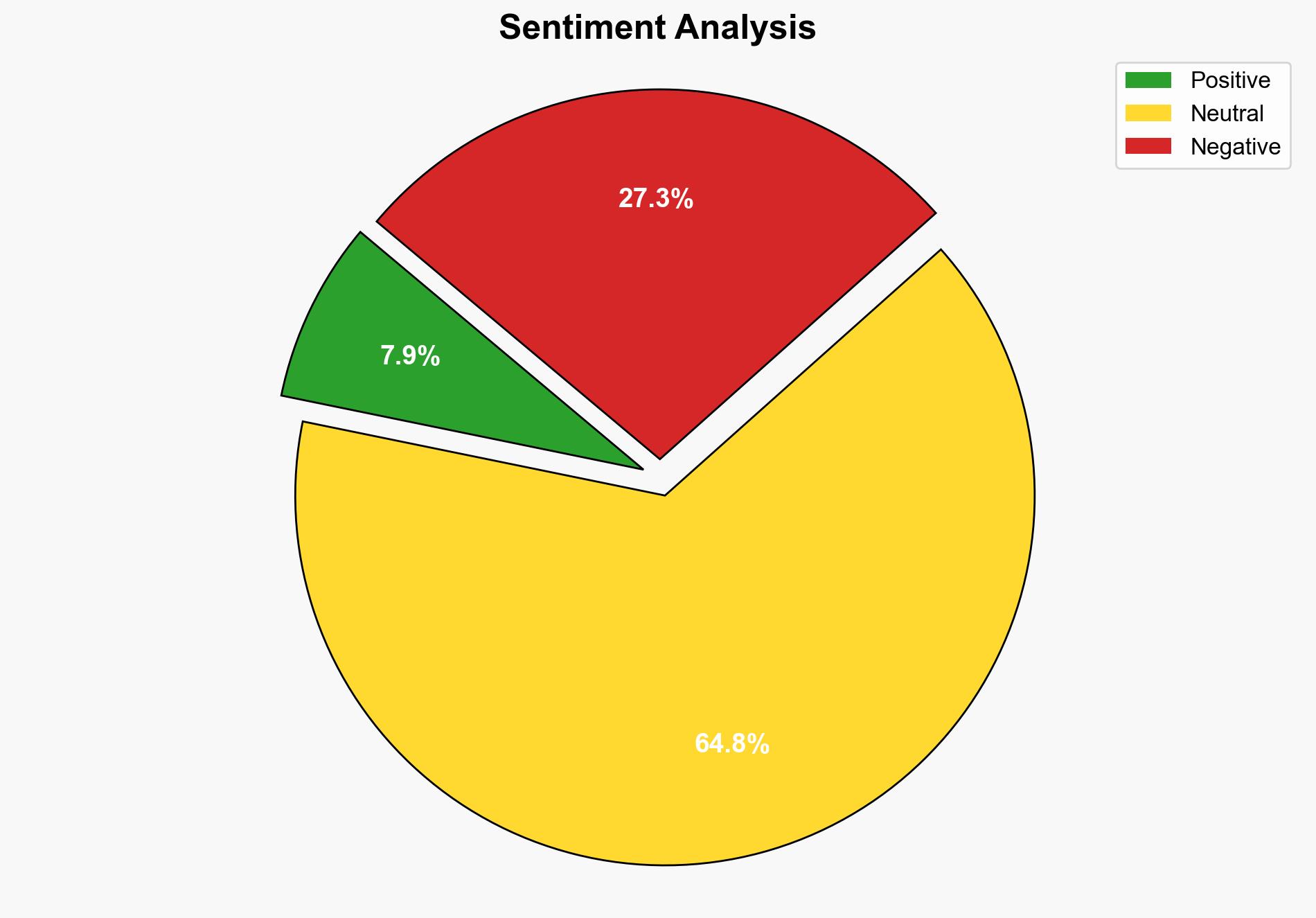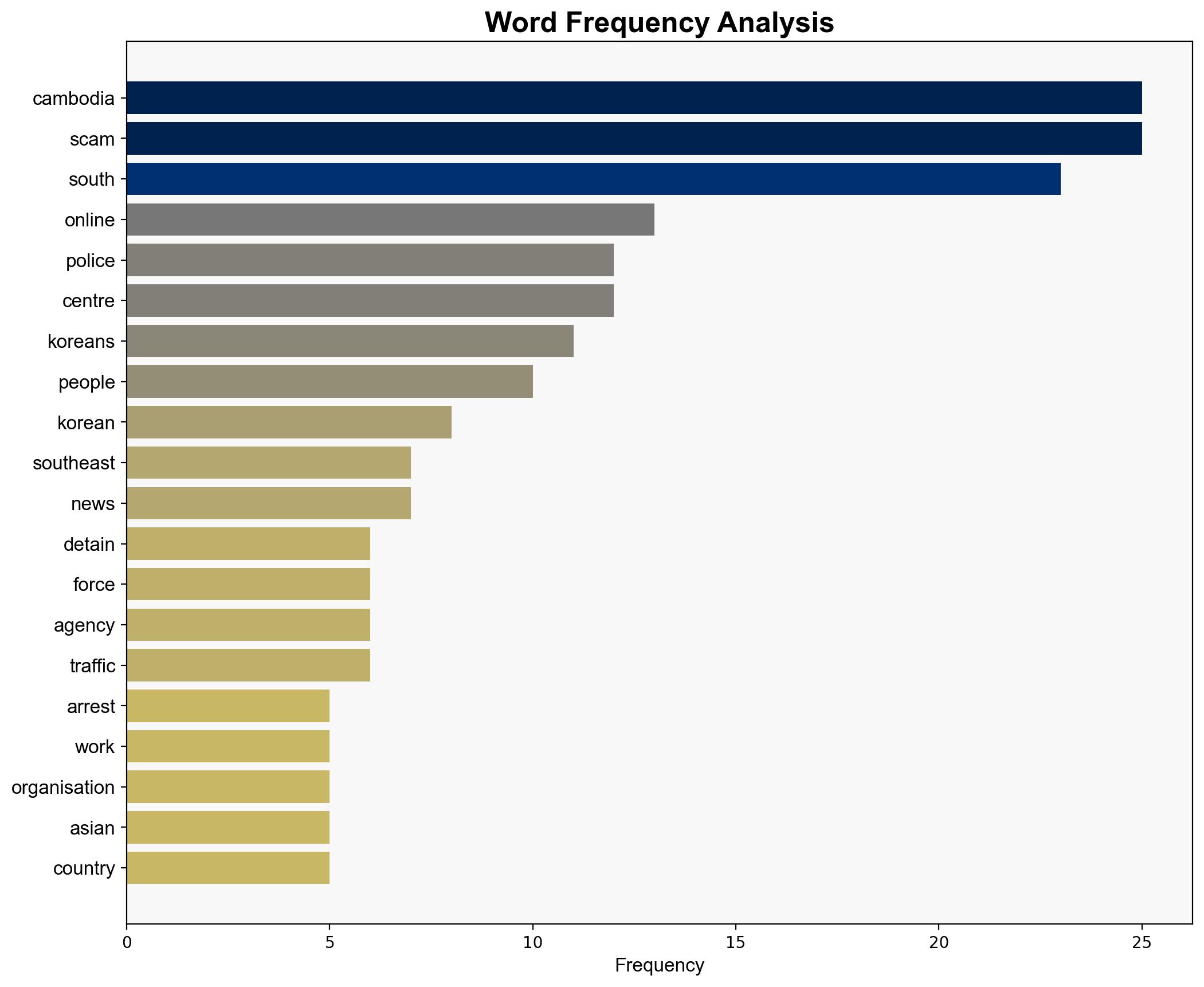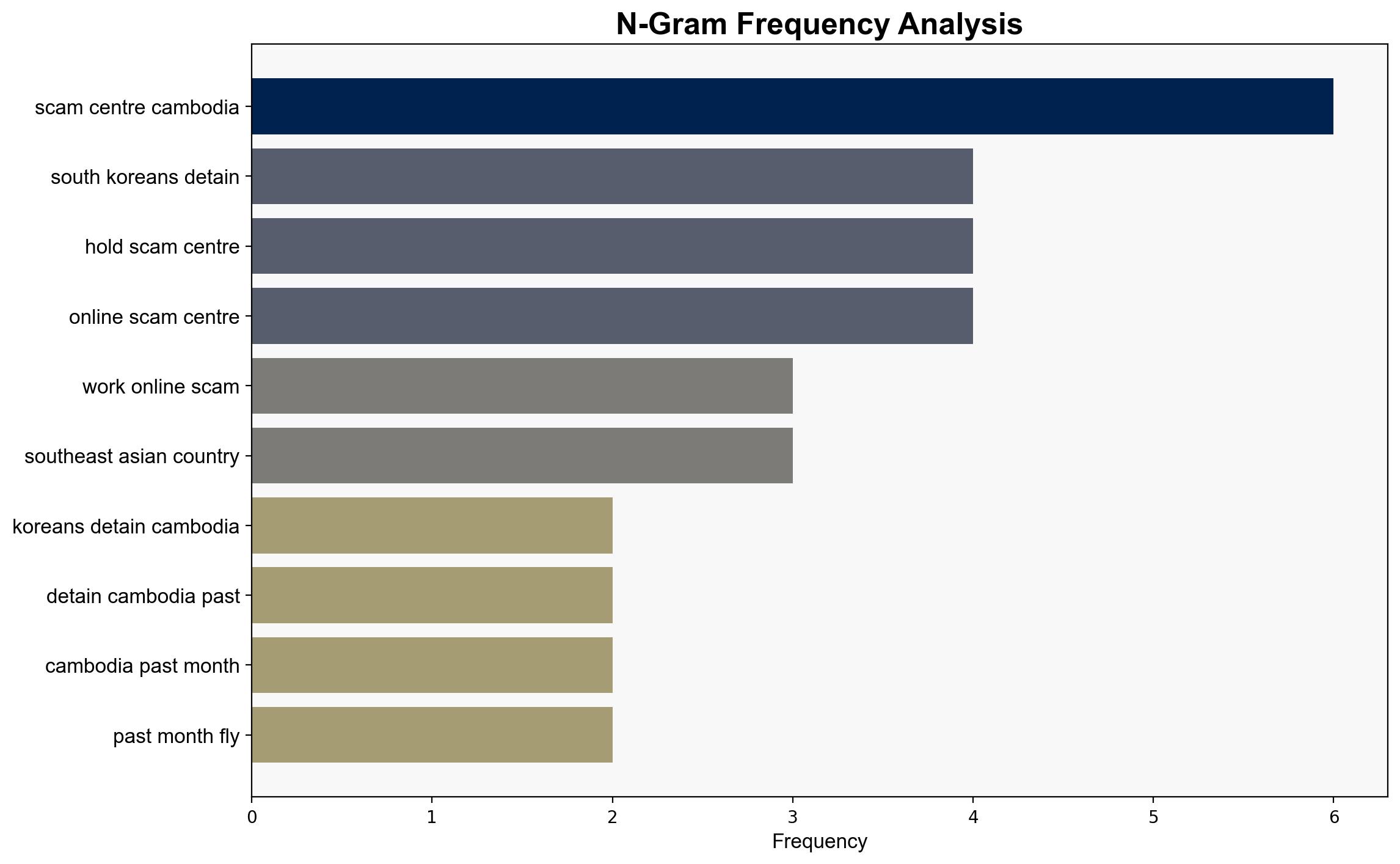Dozens of South Koreans repatriated from Cambodia arrested for alleged online scam work – The Times of India
Published on: 2025-10-21
Intelligence Report: Dozens of South Koreans Repatriated from Cambodia Arrested for Alleged Online Scam Work – The Times of India
1. BLUF (Bottom Line Up Front)
The most supported hypothesis is that a significant number of South Koreans were coerced into participating in online scams in Cambodia, driven by organized criminal networks exploiting vulnerable individuals. Confidence Level: Moderate. Recommended action includes enhancing international cooperation to dismantle these networks and implementing protective measures for citizens abroad.
2. Competing Hypotheses
Hypothesis 1: The South Koreans were coerced into participating in online scams by organized criminal groups in Cambodia. This hypothesis suggests that these individuals were victims of human trafficking, forced to work under threat of violence.
Hypothesis 2: The South Koreans voluntarily engaged in online scams for financial gain. This hypothesis posits that these individuals willingly participated in fraudulent activities, motivated by the lucrative nature of these scams.
Using Analysis of Competing Hypotheses (ACH), Hypothesis 1 is better supported due to reports of coercion, threats of violence, and the broader context of human trafficking in the region. Hypothesis 2 lacks substantial evidence, as no financial incentives or voluntary participation details are provided.
3. Key Assumptions and Red Flags
– Assumption for Hypothesis 1: Organized criminal groups are actively trafficking individuals in Southeast Asia for scam operations.
– Assumption for Hypothesis 2: Individuals have the autonomy and intent to engage in scams voluntarily.
– Red Flags: Lack of detailed evidence on the voluntary participation of individuals; potential bias in reporting due to national interests.
– Missing Data: Specific details on the conditions and recruitment methods used by the criminal networks.
4. Implications and Strategic Risks
The situation highlights the risk of organized crime exploiting global crises, such as the COVID-19 pandemic, to expand operations. It poses significant economic and cybersecurity threats, potentially damaging international relations and trust. The psychological impact on victims and their families is profound, with potential for increased public pressure on governments to act.
5. Recommendations and Outlook
- Enhance international law enforcement collaboration to dismantle trafficking networks.
- Implement protective measures for citizens traveling abroad, including awareness campaigns and support systems.
- Scenario Projections:
- Best Case: Successful international cooperation leads to the dismantling of major scam networks.
- Worst Case: Expansion of scam operations into new regions, increasing global cybercrime rates.
- Most Likely: Continued efforts to combat scams with gradual progress, requiring sustained international focus.
6. Key Individuals and Entities
– South Korean National Police Agency
– South Korean Foreign Minister Cho Hyun
– Cambodian authorities
7. Thematic Tags
national security threats, cybersecurity, counter-terrorism, regional focus




